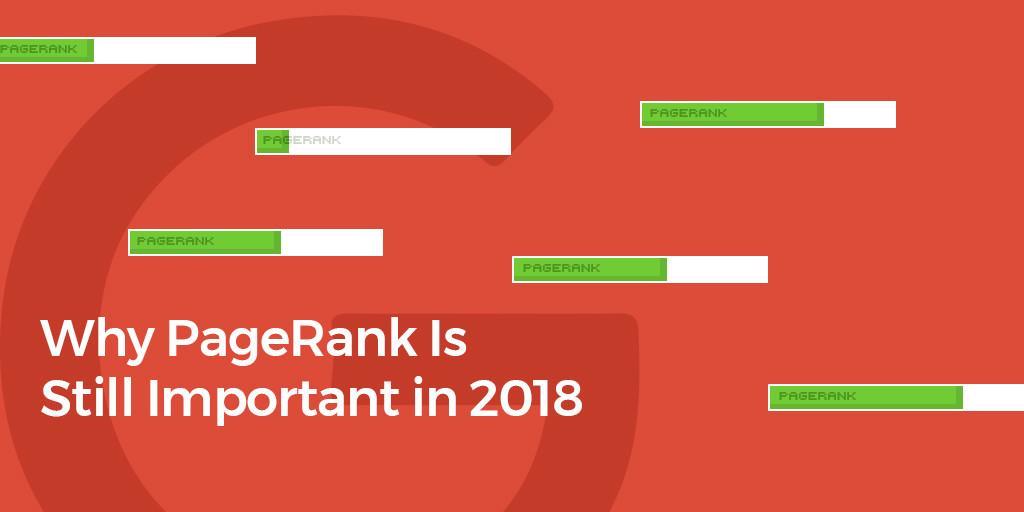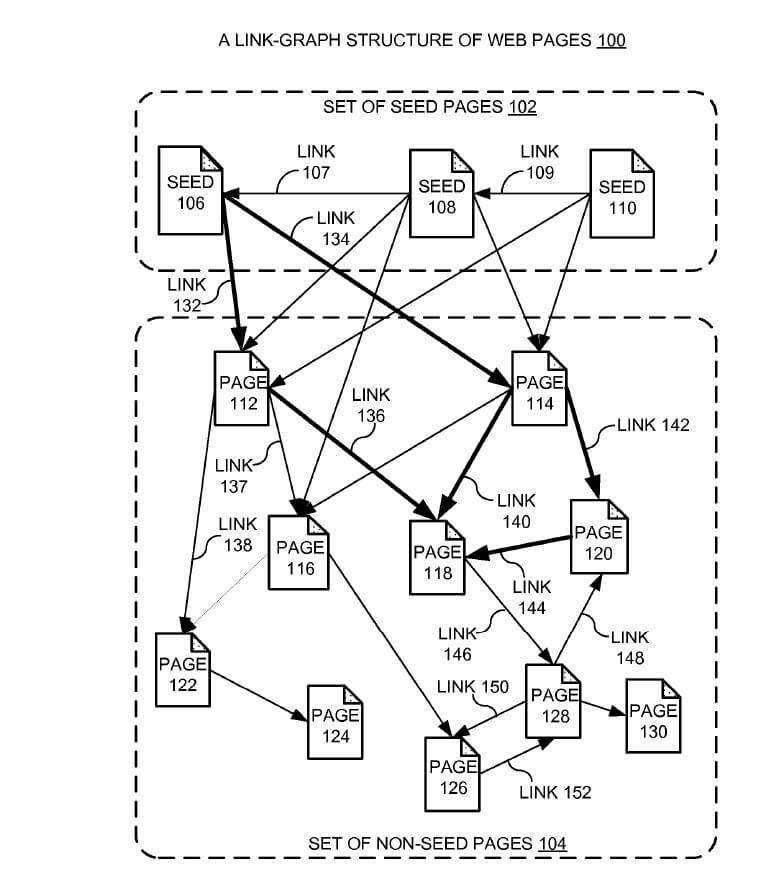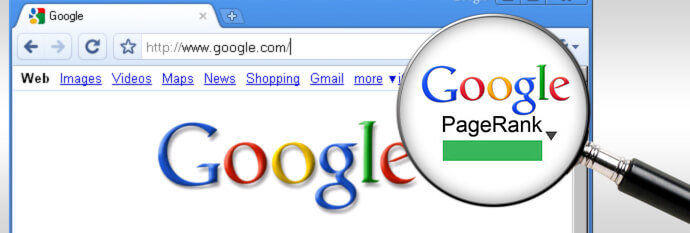It was a time when everybody was looking and following various strategies to increase the PageRank score for their websites. PageRank was developed as a way to measure the importance of a website in order to rank it. Google uses the algorithm by counting the number of links and checking their quality. Everybody check PageRank (PR) for their website by using the toolbar and compare their website to others if wanted.
While this worked for lots of years, Google removed the PageRank toolbar in 2013, when things started to change, mainly because of the high amount of link spamming.Today we’ll talk about all these changes that surround the Page Rank topic and the link building community, by finding out if it’s still alive or not.

The question that stands on everybody’s mind is: is PageRank really gone? Matt Cutts gave an accurate answer in 2013, which can be as valuable today as it was back then regarding the need of PageRank.
He said that they will continue to support it until people will continue using it. My guess is that they took it off from the public sight view because it continued to do more harm than good, but they didn’t really stop using it. They wanted to stop spammers that used PageRank as a way to make illegal money and use artificially inflated links to get high PR.
Let’s dive in and find out what is the official statement and what do experts think about this algorithm update.
1. The Renewed Google PageRank Patent Used as a Ranking Algorithm
After PageRank was so fashionable, then left alone to disappear into the ‘nothingness’ of the Internet, it was brought back into the sight of the public eye. So, what’s changed? What does this mean for you?
As a Google representative says, this update does not change anything for webmasters or SEOs in how their sites show up in Google search.
In multiple ways and times, representatives from Google explained that they will continue to use PageRank internally within its ranking algorithm. More than that, Google updated the PageRank algorithm patent.
Confirmed! “Having spoken with @methode it’s clear, #Google is still using the #pagerank algorithm” –@Dixon_Jones laying down the #Backlinks law in our webinar here: https://t.co/Hm8beOyQdC pic.twitter.com/y4WbHNZvEF
— DeepCrawl (@DeepCrawl) November 22, 2017
More than that, Google updated the new patent regarding the PageRank. Yes, PageRank is still used in our algorithms, among a number of other signals,” a Google Spokesperson confirmed.
Bill Slawski, Google Patent guru, debated the topic in lots of his posts and started a Twitter thread on this after he wrote on his blog about the new Google PageRank Patent update
Do You Believe that Google is still using PageRank now that the original patent (and Google’s exclusive license to use it has expired?
— Bill Slawski ⚓ (@bill_slawski) May 8, 2018
A few weeks ago Google updated the PageRank patent after they’ve shut down the toolbar, to stop people from focusing on the numbers. Before starting to freak out, which should not be the case, let’s see what was updated in Google’s algorithm.
| One embodiment of the present invention provides a system that ranks pages on the web based on distances between the pages, wherein the pages are interconnected with links to form a link-graph. More specifically, a set of high-quality seed pages are chosen as references for ranking the pages in the link-graph, and shortest distances from the set of seed pages to each given page in the link-graph are computed. | |
| Google patent | |
| Producing a ranking for pages using distances in a web-link graph | |
Moreover, Google explains how the distances of pages attached to the links determine the ranking scores associated with those specific pages.
| Each of the shortest distances is obtained by summing lengths of a set of links which follows the shortest path from a seed page to a given page, wherein the length of a given link is assigned to the link based on properties of the link and properties of the page attached to the link. The computed shortest distances are then used to determine the ranking scores of the associated pages. | |
| Google patent | |
| Producing a ranking for pages using distances in a web-link graph | |
The link-graph explained in the patent update can be viewed in the image below:

I know … it looks like the one from the Labyrinth of Crete, the myth of the Minotaur. You’d better hear Bill Slawski talk on the patents.
Google’s decision to stop people from accessing the PageRank score was very inspired. They continue saying that quality content and natural links are the best choices and that decision must have been taken sooner. People shouldn’t focus on the numbers. It is not something you should follow and can be a hard thing to achieve only by looking and trying absurdly to get links from pages with a high PR. The PageRank Patent update helps them qualify pages based lots of other rank factors.
2. The Role Played by Pagerank in Search Engines Results
Google PageRank was one of the first algorithms used for “sorting” the search results. Google confirmed it:
| The heart of our software is PageRank™, a system for ranking web pages developed by our founders Larry Page and Sergey Brin at Stanford University. And while we have dozens of engineers working to improve every aspect of Google on a daily basis, PageRank continues to play a central role in many of our web search tools. | |
PR wasn’t the sole factor in the way web pages were ranked, but it has a high importance in the search engine optimization process. Google used lots of other sophisticated text-matching techniques to show relevant web pages for each search query. The nice part was that everyone could see the PageRank for their web site and for their competitors, as well, by using the Google toolbar PageRank.

PR enjoyed some years of glory when it was something that everyone was using and following to get high scores. Which eventually will lead to page boost to get featured in the first results of Google search.
Inevitable, every good thing at some point is used for bad purposes. The same thing happened with Google PR. Spammers artificially inflated the backlink profile just for the sake of having lots of links on domains with high PR. The problems appeared when some people focused on getting a large number of high PR pages with few effort without realizing it is not enough. They avoided content and lots of other ranking factors which had a great importance as well.
Spammers started selling and promising PageRank boost. The blame fell on the PageRank (and on the so-called experts) for lots of things: spammy emails asking for links, trashy comments with links, forums filled with shady links.
The PR has begun to decline when Google launched Chrome with the possibility to search from the address bar built-in (see the picture below). You could search directly in the address bar and even if you wanted to get the Google toolbar, which was irrelevant at this point, you couldn’t because Google never released a version for Chrome.

Besides the selling and buying business for links with high PR, it seems that multiples websites experienced PageRank loss because of the switch from HTTP to HTTPS. Some site owners refer to it, and since there was nothing to restore it, they basically gave up on PR.
3. Google Shut down the Pagerank Toolbar. Why & How This Impacted SEO
After the launch of Chrome, when Google began to lose the attention on PageRank, other browser dropped the support for it. Firefox in 2011, Google removed it in 2016, and they have been officially closed it down from Internet Explorer, too.
@szymonslowik @methode @rustybrick Yes, it’s true. https://t.co/5iohiJ6wjQ has some comments from us. Do you use the toolbar?
— John ☆.o(≧▽≦)o.☆ (@JohnMu) March 9, 2016
Some wanted to keep using it, while others were expecting Google to do this sooner especially after John Mueller’s announcement that they stopped updating the PageRank scores. He was asked in one Google Hangout why there are so many PR6 sites that are spammy and are getting away with it, even if he reported the problem various times in over one year.
At 19:00 you can check the whole conversation and John Mueller’s response:
| There are a few things where we do take action that you might not see directly. Toolbar PageRank is something that we have not updated for about a year now, and we’re probably not going to be updating it going forward. | |
| John Mueller | |
| Webmaster Trends Analyst at Google | |
That being said, he gave another reason why Google PR toolbar died, slowly but inevitably. Even if Google removed the toolbar scores from the public view, the marks of those who changed the web will remain. Unfortunately, black hat SEO hurt you, the internet and everyone else.
Retiring the PageRank display from Toolbar helps avoid confusing users and webmasters about the significance of the metric.
The SEM Post had a talk with a Google spokesperson regarding their decision to remove PageRank from Google Toolbar and they confirmed it is was related to the final user:
| As the Internet and our understanding of the Internet have grown in complexity, the Toolbar PageRank score has become less useful to users as a single isolated metric. Retiring the PageRank display from Toolbar helps to avoid confusing users and webmasters about the significance of the metric. | |
You shouldn’t believe everything you are told in a blink of an eye. It wouldn’t hurt you to take things with a grain of salt.
Conclusion
Long story short, the long debate regarding Google PageRank patent should be taken into consideration, but people shouldn’t freak out about it. Search engine optimization will work as it did until now and rankings won’t be shaken up by this update.
Google PageRank update isn’t something scary. It was an algorithm update; something that needed to be done. The PageRank wasn’t updated for a long time. If you did your job right, then nothing is going to change for you. What everybody should remember is to focus on quality links, since they always worked and always will be in style.
The post Does Google PageRank Still Matter in 2018? A Retrospective View in the PageRank History appeared first on SEO Blog | cognitiveSEO Blog on SEO Tactics & Strategies.
SEO Blog | cognitiveSEO Blog on SEO Tactics & Strategies

No comments:
Post a Comment